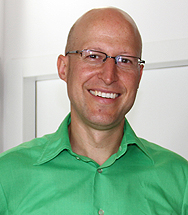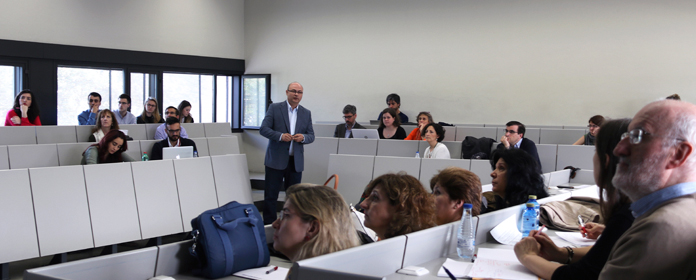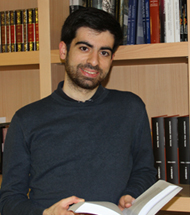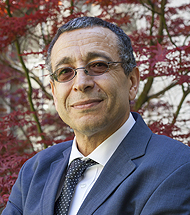"Any experience, any new information is interpreted from the cognitive schemas we already have."
Bert Cornillie, professor at the University of Leuven, gave as an example at the ICS the traditional family frameworks that Donald Trump uses to reinforce his stance

"Any experience, any new information we have is interpreted on the basis of the schemas or cognitive frameworks we already have". This is what Bert Cornillie, Senior Associate Professor of Spanish Linguistics at the University of Leuven, said at the University of Navarra. The expert was invited by the project 'Public discourse' of the Institute for Culture and Society of the University of Navarra to present a research on 'The linguistic modality and framing in the journalistic speech '.
Bert Cornillie has reflected on the presence of subjective frames in public opinion - for example, "politics no longer works" - and asked where they arise from. As he pointed out, new frames are created when schemes or concepts already existing in other domains come together and, like result, are reinforced.
As an example, he illustrated the use of frames by politicians with the study of George Lakoff, researcher of cognitive linguistics at the University of Berkeley (California). Lakoff analyzed how the candidate US presidential candidate Donald Trump relied on two frames core topic of traditional American society to reinforce his position: "The security that gives a family father - he is authoritarian - and thedirect cause-effect relationship, a simple, straightforward, simple, one-way speech , without concessions. He insults people because, in this view, a father can do that from time to time," he has argued, adding that attacking the candidate stance reinforces the framework he has created.
Although he affirms that "new leaders like Trump or Le Pen are based on these movements of schemes to develop their more radical speeches". For him this does not mean that the frameworks in which society moves are radicalized, but rather that the digital era has allowed access to more ideas: "The media control or filtering that was previously exercised is evaporating and this means that we have a multitude of opinions, which have their own legitimacy, but which could not be seen so easily before".
He has also made reference letter to a campaign of the food industry that uses the union of schemes: the 'flexivores', in reaction to the rise of vegetarianism. "Being vegetarian is seen as an advance," he says, "but it affects the food industry because it causes a decrease in the demand for meat". That's where the concept of 'flexitarianism' comes from: joining the outline of healthy eating (it's not good to eat meat every day) with the promotion of local production (it reinforces the idea of eating meat, but coming from the nearby geographical environment). "By sharing basic schemes of other frameworks, the framework itself becomes more popular", the expert has defended.
Dialogue between linguistics and communicationBert Cornillie has analyzed six leading and impact factor journals in the area of linguistics and journalism: Journalism, Journalism Studies, Journal of Pragmatics and Cognitive Linguistics between 2010 and 2016. It aimed to find out how modality and framing have been analyzed from the two disciplines. The conclusion was that linguistic categorization is almost absent in programs of study on journalism, while the analysis of journalistic speech is almost absent in cognitive linguistics and pragmatics journals.
From his experience, the researcher has highlighted the need for partnership between linguists and experts in communication sciences. "Linguistics can benefit from the broad vision of speech, the elaboration of themes, discursive lines and, above all, the sociological constellation of positions". In turn, "communication sciences can be inspired by the refined analysis of linguistic forms," he concluded.




